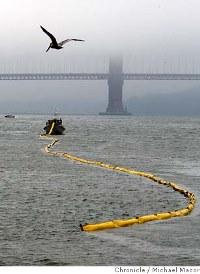
Steamship Mutual
Published: September 01, 2015

A ship owner whose vessel spills oil in the United States may no longer face strict criminal liability when the spilled oil kills migratory birds. The United States Court of Appeals for the Fifth Circuit recently ruled that the Migratory Bird Treaty Act of 1918 (MBTA) does not impose strict criminal liability for accidentally or indirectly killing migratory birds, United States of America v Citgo Petroleum Corp. In the past, prosecutors have brought misdemeanour strict liability criminal charges under the MBTA against vessel owners and operators, when discharges from their vessels killed sea birds. The statutory fines for misdemeanour violations of the MBTA are limited. However, penalties can also include vessel forfeiture or fines under the Alternative Fines Act, 18 United States Code § 3571(d), of up to twice the gross gain or loss resulting from the criminal conduct.
Before the recent Fifth Circuit decision, Courts were evenly split over whether the MBTA applied to accidental or incidental taking of such birds. The Fifth Circuit’s decision aligns it with similar decisions from the Eighth and Ninth Circuit Courts of Appeal, and means that the majority of the five Circuits that have decided this issue have held that an accidental ‘taking’ or ‘killing’ of a migratory bird does not run afoul of the MBTA. Given the split in the Circuit Courts of Appeal, it is possible that this case will be appealed to the United States Supreme Court. A decision by the Supreme Court on the propriety of bringing strict liability criminal charges based on accidents could potentially change the way criminal prosecutions are conducted following oil spills in the United States.
Accidental Killing of Migratory Birds
In United States of America v Citgo Petroleum Corp., CITGO Petroleum Corporation and CITGO Refining and Chemicals Company, L.P. (collectively “CITGO”) were alleged to have committed multiple violations of the MBTA when a surprise inspection of CITGO’s Corpus Christi refinery revealed 130,000 barrels of oil floating atop two uncovered equalization tanks. Because the government suspected birds had died in the uncovered tanks, CITGO was accused of ‘taking’ migratory birds in violation of the MBTA (16 U.S.C. §703.) The district court found CITGO guilty of three out of five counts for ‘taking’ migratory birds and sentenced CITGO to $15,000 for each MBTA violation. CITGO appealed the decision and the Fifth Circuit Court of Appeals reversed the district court’s decision.
The Split in Authority in Interpreting the MBTA
There is a split in authority regarding the interpretation of the MBTA. The Eighth and Ninth Circuits have held that a ‘taking’ is limited to deliberate acts done directly and intentionally to migratory birds. The Second and Tenth Circuits interpret the MBTA more broadly and hold that because the MBTA imposes strict liability, it must forbid acts that accidentally or indirectly kill birds. The Fifth Circuit declined to adopt this broad reading of the MBTA and instead joined the Eighth and Ninth Circuits in its interpretation of the statute.
A three judge panel of the Fifth Circuit decided to interpret the MBTA more narrowly based on the MBTA’s text, its common law origin, a comparison with other relevant statutes, and rejection of the argument that strict liability can change the nature of the necessary illegal act. Importantly the Fifth Circuit reasoned that the MBTA’s text provides no basis, explicitly or implicitly, for criminalising migratory bird deaths because they resulted from violations of other state or federal laws. The Fifth Circuit fundamentally disagreed that because misdemeanour MBTA violations are strict liability crimes, a ‘take’ includes acts (or omissions) that indirectly or accidentally kill migratory birds.
Lastly, the Fifth Circuit addressed the absurd scope of liability that a broad interpretation of the MBTA creates. The Fifth Circuit reasoned that if the MBTA prohibits all acts or omissions that ‘directly’ kill birds where bird deaths are ‘foreseeable’, then all owners of big windows, communications towers, wind turbines, solar energy farms, cars, cats and even church steeples may be found guilty of violating the MBTA.
The United States may petition the entire Fifth Circuit to review the panel decision, or it may ask the United States Supreme Court to review the issue. If the Supreme Court accepts the appeal, its decision may have implications beyond the MBTA, which is not the only statute used by prosecutors to charge ship owners and operators criminally following an oil spill. Prosecutors also routines bring strict liability misdemeanour charges under the federal Refuse Act, and bring charges for negligently discharging oil under the federal Clean Water Act. A broad decision by the Supreme Court could potentially strengthen or weaken the prosecutors’ hands in future cases.
We are grateful to John Cox (Shareholder) and Erin Weesner-McKinley (Associate) of Keesal, Young & Logan


